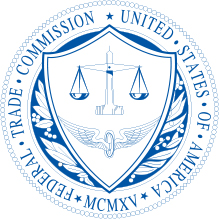Calling all influencers!
I recently had a conversation with one of my clients about the FTC guidelines that were updated in 2024. While the new guidance has been out for a while, it seems like there is still some confusion so I wanted to provide an update from my perspective.
If you’re trying to put deals in place with brands, or if you have deals in place, you should understand the rules regarding transparency, clarity, and compliance. This is important because your failure to comply with the guidelines will be imputed to your client. Not a good plan for building your business.
1. Enhanced Enforcement on Fake Reviews
Under the FTC influencer marketing guidelines, complete transparency is required for all creator partnerships. This general rule has been in existence for many years and the updates focus on additional prohibitions such as:
- Providing compensation based on whether the review contains positive or negative sentiment;
- Paying for reviews of any kind, from any source; and
- Offering other incentives that might be viewed as requiring a specific type of feedback.
2. Clear Guidelines on Compensation
The FTC guidelines have upped the ante regarding transparency in relationships. Brands must provide:
- Clear disclosure of any significant connection between a company and a reviewer;
- Proper identification of reviews from company officers, managers, or employees; and
- Transparency when a review come from immediate relatives of company personnel.
3. Platform Control and Review Management
Additional boundaries in certain areas must be in place:
- Must disclose that a platform is company-controlled and not an independent source;
- Cannot artificially suppress or delete negative reviews; and
- Provide additional transparency for the review collection and display processes.
4. So, What Does It Mean?
Nobody wants to meet with the FTC to discuss non-compliance. It’s especially problematic if your brand partner gets fined or sanctioned by the FTC because you didn’t know the rules. Let’s avoid all of that and focus on what you should do right now:
- Review the updated FTC guidelines;
- Check your existing brand contracts to ensure that you are compliant; and
- Ensure that your marketing activities, particularly your process for generating, posting, and managing reviews follows the updated guidelines.
Disclaimer – Yes, I’m a lawyer, but I’m not your lawyer. All information in this post is provided for educational purposes only and should not be considered legal advice for any specific person or specific situation.
Remember – Be Smart. Be Legal.









